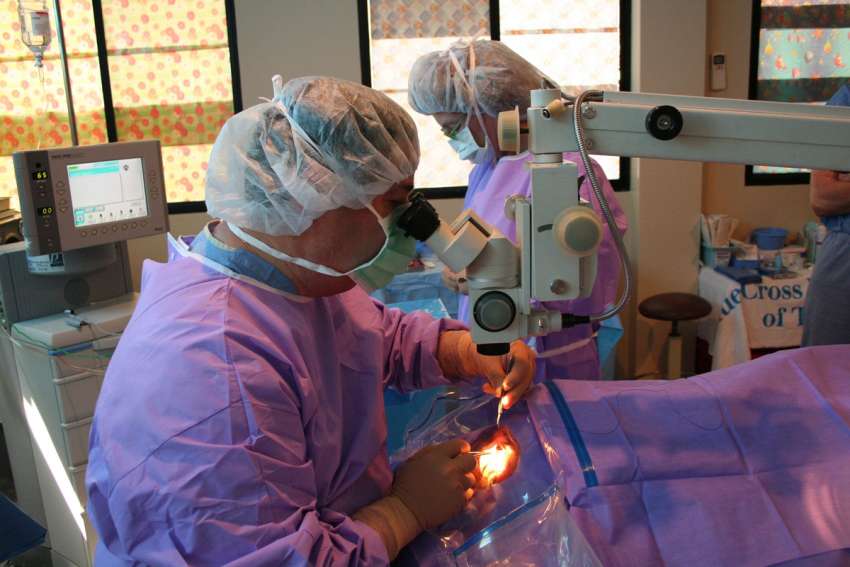Whether or not any particular Catholic hospital or health-care service will jump in when Ontario opens up knee and hip replacement surgeries to both for-profit and non-profit independent day surgeries in 2024 is an “operational decision” that each Catholic health provider must make on its own, said Ron Noble. But the Catholic Health Association of Ontario president and CEO Noble believes there’s an opportunity there for some CHAO members.
“As the government firms this program up, members that have extra capacity in their existing facilities will see it as an opportunity to get funding and to provide more service to the community they serve,” Noble said. “Many of our smaller facilities do have extra OR (operating room) capacity, because they just don’t have the patient volume to fill them, to be honest.”
At SEHealth — formerly Saint Elizabeth Healthcare, Ontario’s largest provider of homecare services — CEO John Yip is definitely interested.
“We support universal health care,” Yip said. “We support publicly funded services. But we also support improved patient access, reduced wait times, care closer to home, getting care when you need it. And that’s simply not the case today.”
While details have not been laid out, Health Minister Sylvia Jones has announced an immediate expansion of cataract surgeries and related ophthalmologic services at three clinics in Windsor, Kitchener-Waterloo and Ottawa. Jones claims wait lists, which have expanded during the pandemic, can be brought down to pre-pandemic levels by March.
Magnetic resonance imaging (MRI) and computed tomography (CT) scans will get the “independent health facilities” treatment in coming months. These clinics, as early as this year, will also be funded to perform more colonoscopies and endoscopies.
In February the government plans to pass legislation that will kick off a process for the independents to apply to take on knee and hip replacements beginning next year. Jones promises unspecified “enhanced oversight” of these facilities.
Whether for-profit or non-profit, the services offered will be covered by public provincial health insurance — OHIP.
But Yip doesn’t believe the independent clinics option fundamentally changes Canada’s public system.
“Here’s a news flash, every part of our health-care system has a for-profit element to it,” Yip said. “Most Ontarians don’t realize it, but if you go right across the care continuum there are for-profit entities, including in homecare. That train has already left the station.”
The idea that private clinics would bleed the public hospitals of skilled personnel already in short supply — doctors, nurses, technicians — doesn’t worry Noble.
“Some of those specialists would argue that they can’t get enough OR time in the existing system. I don’t think it will be a physician issue,” Noble said.
When it comes to nurses and technicians with operating room skills, there should be other solutions, said Yip.
“The issue about system capacity is a system issue. It does require more thought,” he said. “We do need a capacity plan.”
Up against for-profit health care, Yip likes the competitive chances of non-profit social enterprises like SEHealth.
“Let’s let the market decide,” he said. “I’m very much in support of the not-for-profit model. Let’s see how this plays out. But I think the not-for-profit sector that SE represents can thrive in this environment. It has the trust of Ontarians… There are no shareholders to pay off. The return (on investment) really is about bringing health and happiness to the people we serve. This is the true return. But nothing is for free. There’s a cost here to provide the care. Costs do need to be covered.”
In his previous position, Yip ran the non-profit Kensington Health in Toronto, which competes against for-profit entities providing eye surgery, colonoscopies and other diagnostic services.
“When you go down the list of the types of procedures that could be done in these facilities, there is very little ability to generate a return to shareholders in a way that makes it lucrative. This is not a lucrative business,” he said.


